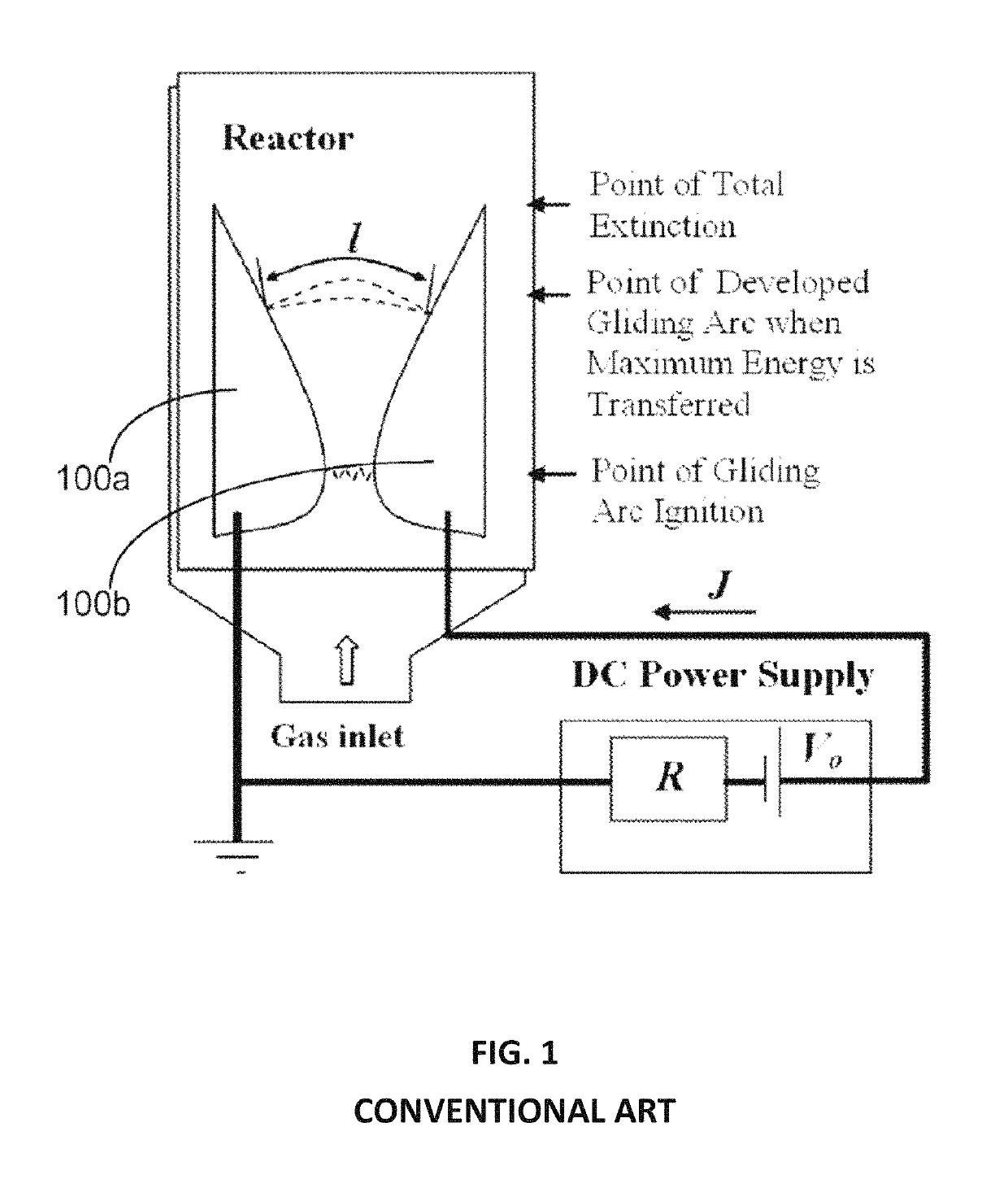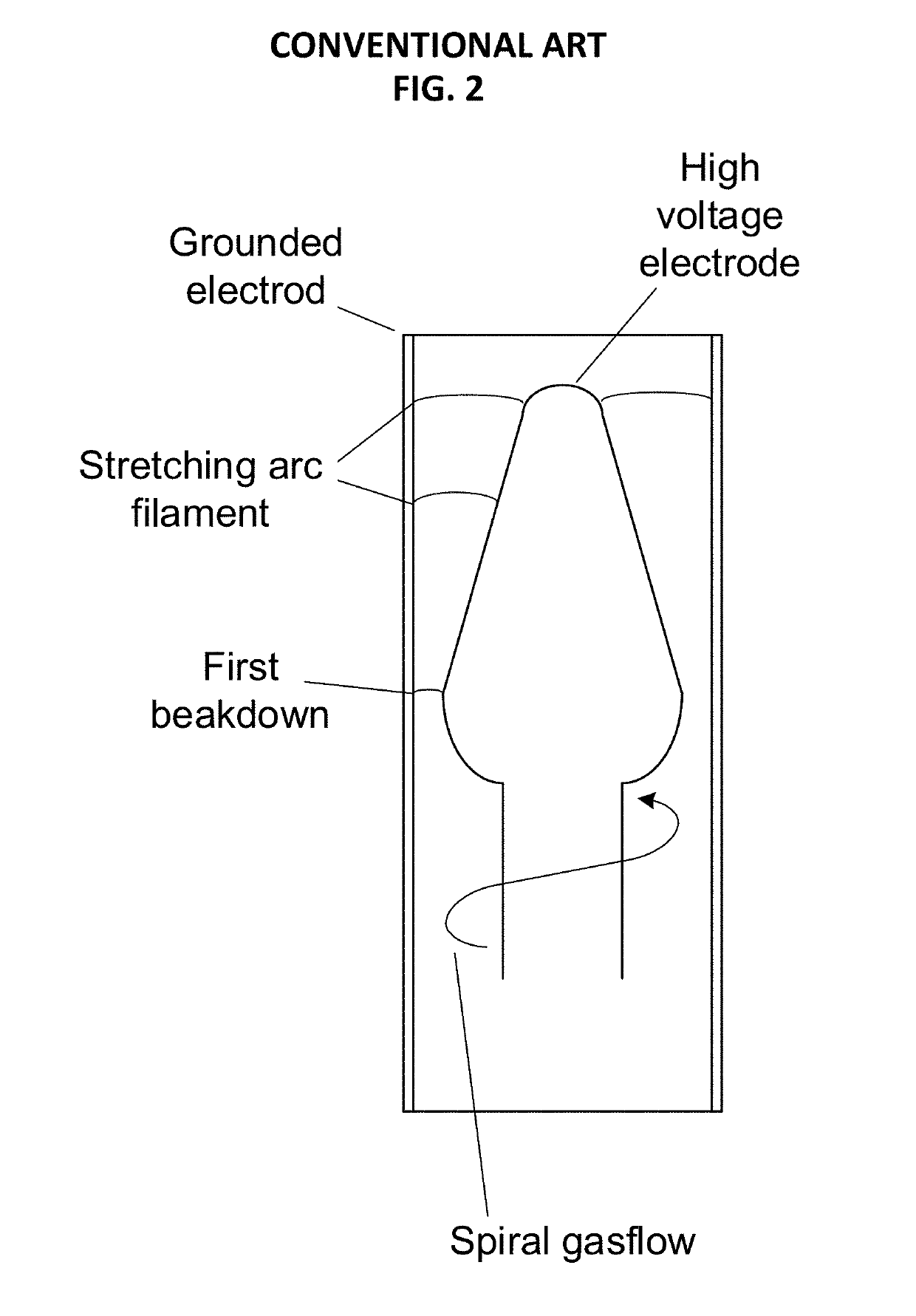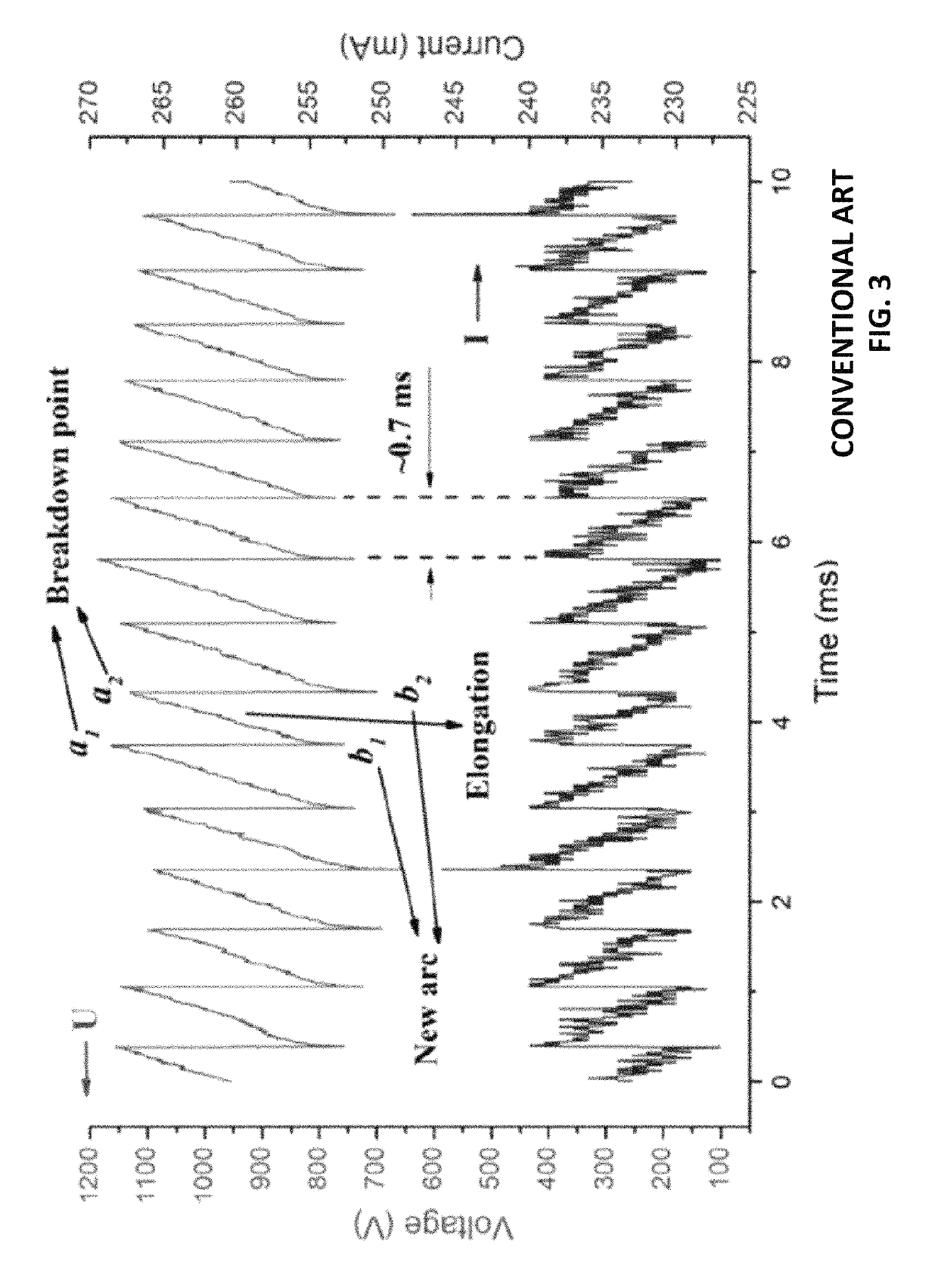Method and system for carrying out plasma chemical reaction in gas flow
a plasma chemical reaction and gas flow technology, applied in the field of low-current high-voltage plasmatrons, can solve the problems of loss of electron energy, gas heating, and approach not being as effective, and achieve the effect of reducing the energy loss of electrons and reducing the energy loss
- Summary
- Abstract
- Description
- Claims
- Application Information
AI Technical Summary
Problems solved by technology
Method used
Image
Examples
example # 1
Example #1
[0059]Conversion of CO2 in plasma-chemical reactor based on low current high voltage plasmatron was performed. CO2 was input to the system that includes a high voltage plasmatron designed according to the above description, heat exchanger and recirculation pump. Gas goes through plasmatron, than goes through heat exchanger for cooling and then part of gas goes back to the plasmatron input and another part of gas goes to the output for gas analysis.
[0060]Parameters of Experiment:
[0061]1. Plasmatron input power: 1600 W
[0062]2. Input CO2 flow rate: 2 m3 / h
[0063]3. Recycle pump flow rate: 25 m3 / h
[0064]4. Plasmatron output channel diameter: 6 mm
[0065]Output Gas Composition:
[0066]CO: 15%
[0067]O2: 7.5%
[0068]CO2: 77.5%
example # 2
Example #2
[0069]Conversion of CO2 in plasma-chemical reactor based on low current high voltage plasmatron was performed. CO2 was input to the system that includes a high voltage plasmatron designed according to the above description, heat exchanger and recirculation pump. Gas goes through plasmatron, than goes through heat exchanger for cooling and then part of gas goes back to the plasmatron input and other part of gas goes to the output for gas analysis.
[0070]Parameters of Experiment:
[0071]1. Plasmatron input power: 1600 W
[0072]2. Input CO2 flow rate: 2 m3 / h
[0073]3. Recycle pump flow rate: 5 m3 / h
[0074]4. Plasmatron output channel diameter: 6 mm
[0075]Output Gas Composition:
[0076]CO: 11%
[0077]O2: 5.5%
[0078]CO2: 83.5%
example # 3
Example #3
[0079]Conversion of CO2 in plasma-chemical reactor based on low current high voltage plasmatron was performed. CO2 was input to the system that includes a high voltage plasmatron designed according to the above description, a heat exchanger and a recirculation pump. Gas goes through plasmatron, than goes through the heat exchanger for cooling and then part of the gas goes back to the plasmatron input and another part of gas goes to the output for gas analysis.
[0080]Parameters of Experiment:
[0081]1. Plasmatron input power: 1600 W
[0082]2. Input CO2 flow rate: 2 m3 / h
[0083]3. Recycle pump flow rate: 2 m3 / h
[0084]4. Plasmatron output channel diameter: 6 mm
[0085]Output Gas Composition:
[0086]CO: 8%
[0087]O2: 4%
[0088]CO2: 88%
[0089]As can be seen from these examples, gas flow through the plasmatron channel provided by recirculation pump is a one of the important parameters that determine gas conversion efficiency by plasma, because it determines the electric discharge mode.
[0090]Typi...
PUM
 Login to View More
Login to View More Abstract
Description
Claims
Application Information
 Login to View More
Login to View More - R&D
- Intellectual Property
- Life Sciences
- Materials
- Tech Scout
- Unparalleled Data Quality
- Higher Quality Content
- 60% Fewer Hallucinations
Browse by: Latest US Patents, China's latest patents, Technical Efficacy Thesaurus, Application Domain, Technology Topic, Popular Technical Reports.
© 2025 PatSnap. All rights reserved.Legal|Privacy policy|Modern Slavery Act Transparency Statement|Sitemap|About US| Contact US: help@patsnap.com



